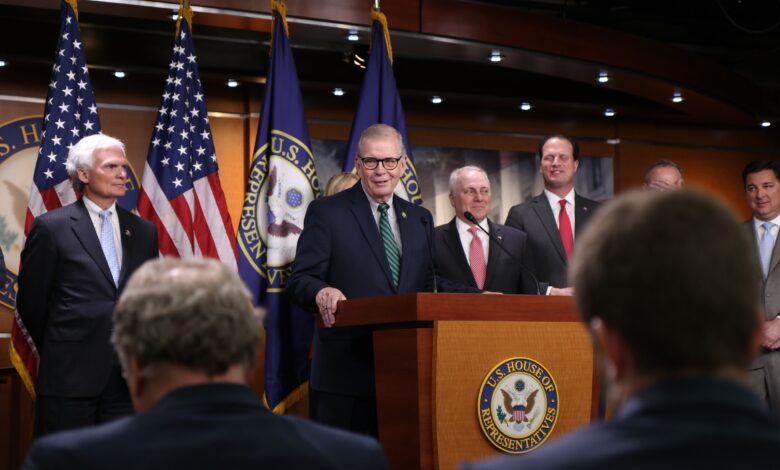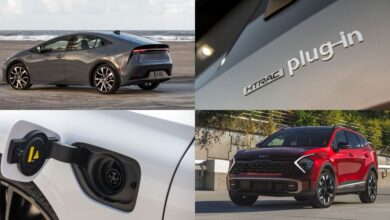House Passes Walberg Bill to Protect Automobile Choice

Washington, D.C. — Today, the House passed the Choice in Automobile Retail Sales (CARS) Act with bipartisan support by a vote of 221-197. The legislation, introduced by Congressman Tim Walberg (MI-05) and Andrew Clyde (GA-09), would prohibit the Biden administration from implementing aggressive emission standards for light and medium-duty vehicles that limit consumer choice by requiring over two-thirds of all new vehicles to be electric by 2032. The CARS Act would also prevent the EPA from implementing future vehicle emissions regulations that would mandate certain technologies or limit the availability of vehicles based on engine type.
“Just last week, nearly 4,000 car dealers sent a letter to the Biden administration asking them to reconsider their EV mandate, citing a lack of demand from consumers. Today, with the passage of the CARS Act, the House showed we’re listening,” said Rep. Walberg. “Instead of tying the hands of American car manufacturers and forcing families to purchase vehicles not conducive to their lifestyle and pricing many families out of the market, we should encourage consumer choice. The passage of the CARS Act is a win for not only the consumer but the entire auto industry, from the workers producing engines in my district to the dealers who can meet the demand for other vehicles. We have to be realistic, and while EVs may play a large role in the future of the auto industry, Washington should not discount other technologies like hydrogen, hybrids, and the internal combustion engine. The CARS Act has already received bipartisan support in the Senate, and they should act swiftly by bringing it up for a vote.”
The Choice in Automobile Retail Sales (CARS) Act
The Choice in Automobile Retail Sales (CARS) Act would stop this executive overreach by preventing the implementation of regulations that seek to limit consumer choice, instead allowing consumers to choose the vehicle that best meets their needs. The legislation would:
- Prohibit the EPA from finalizing, implementing, or enforcing its proposed rule titled “Multi-Pollutant Emissions Standards for Model Year 2027 and Later Light-Duty and Medium-Duty Vehicles”
- Prohibit the use of authority under the Clean Air Act to issue regulations that mandate the use of any specific technology or that would limit the availability of new motor vehicles based on that vehicle’s engine type
- Require the EPA to update any regulations that result in the limited availability of new vehicles based upon that vehicle’s engine within two years
- End the EPA’s radical agenda, which is driving up costs for people and handing the keys of America’s auto industry to China
Full text of the bill can be found here.
Congressman Walberg recently penned an op-ed with Heather Reams on why Biden’s electric vehicle strategy is not the silver bullet to reduce emissions.
Background
In April 2023, the Environmental Protection Agency (EPA) announced a proposed rule titled “Multi-Pollutant Emissions Standards for Model Year 2027 and Later Light-Duty and Medium-Duty Vehicles.” This rule would set stringent emissions standards for criteria pollutants and greenhouse gasses for these vehicles, and the EPA has projected that due to these aggressive standards, over two-thirds of all new vehicles will be electric by 2032.
This proposal has raised serious concerns regarding the accessibility of affordable vehicles for the average American consumer. According to recent research from CRES Forum, the average EV owner’s household income is over $100,000, which only equates to about 31% of U.S. households, making electric vehicles an unrealistic option for the majority of American families. Supply chain shortages have also caused the prices of EVs to continue to rise, making electric vehicles further out of reach for consumers.
Congressman Walberg serves on the House Energy and Commerce Committee and the House Education and the Workforce Committee. For more information on Walberg’s work in Congress visit walberg.house.gov.

![[VIDEO] Savoy Automobile Museum wins USA Today 10Best Readers Choice Award for Best Attraction for Car Lovers [VIDEO] Savoy Automobile Museum wins USA Today 10Best Readers Choice Award for Best Attraction for Car Lovers](https://europeantech.news/wp-content/uploads/2024/05/1715826533_savoy.jpg)

